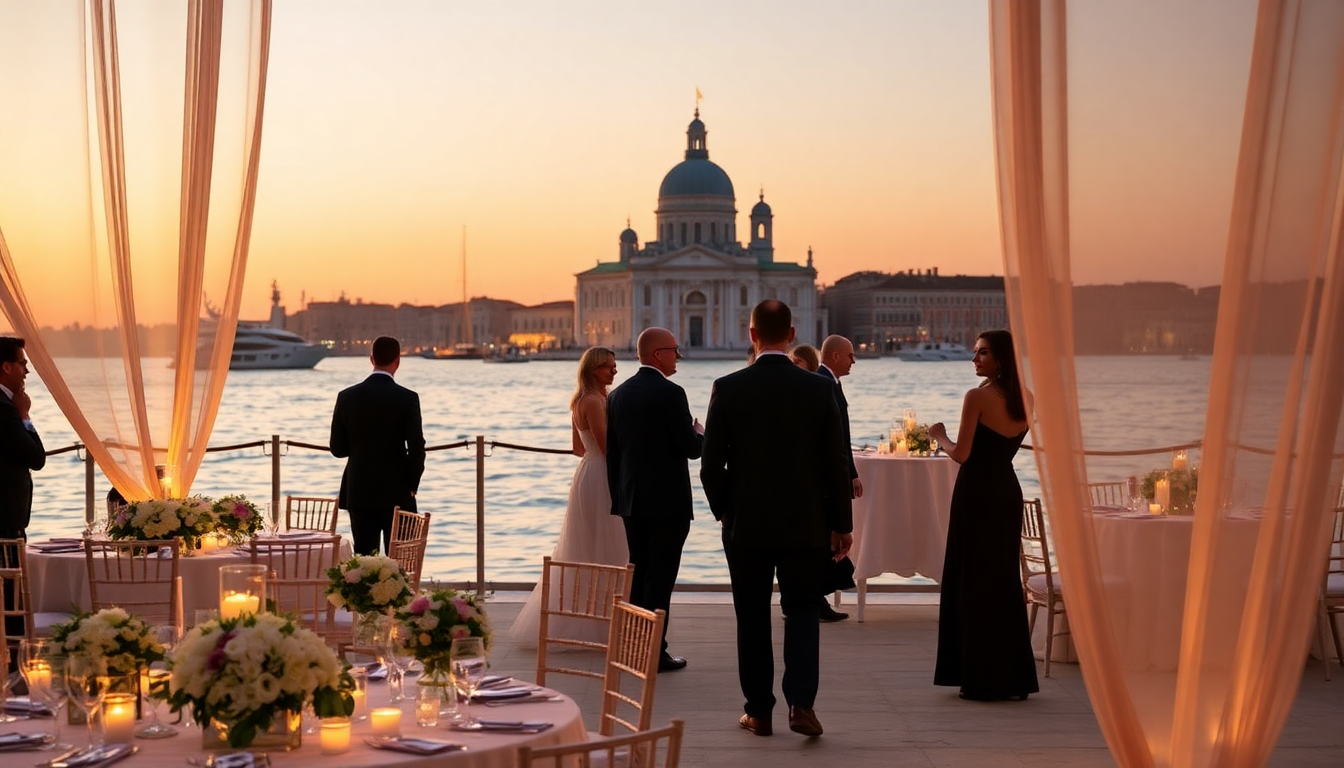Table of Contents
The recent wedding celebrations of Jeff Bezos and Lauren Sánchez in Venice have not only caught the attention of the global media but have also sparked a lively debate in Italy about the impact of such extravagant events on local communities. Held over three days on the stunning island of San Giorgio, the festivities drew a star-studded guest list and were accompanied by heavy security. While some see it as a joyful celebration of love, others view it as a glaring reminder of the widening gap between the wealthy elite and local residents. This raises an important question: what does the future hold for tourism in this historic city?
A glamorous affair and the media storm
The wedding, set in the iconic Church of San Giorgio Maggiore, a masterpiece designed by Andrea Palladio, was a magnet for celebrities, including actors, musicians, and influencers. Major Italian newspapers didn’t shy away from covering the event extensively. The left-leaning La Repubblica highlighted the historical significance of the venue while questioning the motives behind such a public display of wealth. They pointed out that the wedding served a dual purpose: celebrating love and, perhaps more prominently, showcasing power and influence in a city that has increasingly become a playground for the rich.
On the flip side, the centrist Corriere della Sera offered a more positive spin, featuring comments from Venice’s mayor, who expressed pride in hosting such a high-profile event. Mayor Luigi Brugnaro defended the extensive security measures put in place, which included private security forces, emphasizing the importance of safety in today’s world. This contrasting coverage illustrates the complex relationship between wealth, privilege, and local culture.
The challenge of overtourism in Venice
As the wedding celebrations unfolded, a grassroots movement dubbed “No Space for Bezos” emerged, voicing concerns over the negative effects of overtourism on Venice’s local residents. Protesters argue that the city is turning into a private enclave for the affluent, leaving locals feeling marginalized. Their creative protests, including threats to fill the canals with inflatable crocodiles, highlight the growing frustration about the commercialization of Venice’s cultural landmarks.
Despite the protests, some estimates suggest that the economic impact of the Bezos-Sánchez wedding could be substantial, potentially boosting Venice’s economy by nearly €957 million. This figure represents a significant chunk of the city’s annual tourism revenue, stirring up debate about whether such economic gains justify the long-term consequences, like rising living costs and the erosion of cultural identity. Can you really put a price on a city’s heritage?
Security and spectacle: a wedding to remember
On a lighter note, the wedding’s security arrangements were nothing short of extraordinary, with reports detailing the impressive measures taken to ensure safety. Alongside a group of ex-marines, over 100 Italian anti-riot police were deployed, not to mention a bomb-sniffing Labrador named Elvis, who was part of the security detail. This spectacle of protection underscores the extremes to which organizers will go to safeguard their elite guests, further highlighting the divide between the privileged few and the average citizen.
In conclusion, the Bezos wedding in Venice has become a focal point for discussions about wealth, privilege, and the sustainability of tourism in one of the world’s most cherished cities. As local residents grapple with the impacts of overtourism, the challenge remains to strike a balance that honors both economic interests and the cultural integrity of Venice. This event serves as a powerful reminder that while the allure of luxury is undeniable, it often comes with consequences that warrant careful consideration.


